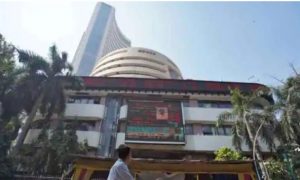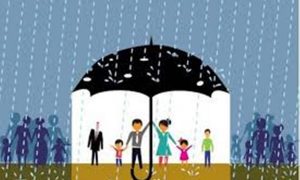NEW DELHI: Food delivery apps like Zomato and Swiggy will now collect GST at the point of delivery and the reduced tax rates on key Covid drugs will remain in force till December 31.
These were among the key decisions taken during the 45th meeting of the goods and services (GST) council – its first in-person meet since the Covid outbreak. The last such meeting took place 20 months ago on December 18, 2019.
Briefing the media on the outcomes of the meet, Sitharaman said: “We have taken quite a few people-friendly decisions, I am very happy that some of them were long-pending.”
Here are the key decisions taken by the panel:
Reduced GST rate on Covid-19 drugs
* GST council has granted exemption to 2 key Covid drugs – Zolgngelsma and Viltepso. These drugs cost up to Rs 16 crore.
* GST on 7 other medicines recommended by the pharmaceutical department has been slashed from 12 per cent to 5 per cent till December 31.
* Concessional GST rates on Covid-19 related medicines include only those medicines which were included earlier. However, it does not cover medical equipment.
* Medicines for which concessional GST rate will be applicable include Amphotericin B (0 per cent), Tocilizumab (0 per cent) Remdesivir (5 per cent) and Heparin (5 per cent).
* The concessional regime for certain medical equipment will end on September 30.
Fuel prices won’t be included in GST
* The GST Council felt it wasn’t the right time to bring petroleum products under the GST regime.
* The panel discussed including petrol and diesel prices under its regime as per the ruling by the Kerala high court, said Sitharaman.
* After deliberations, it was unanimously decided by the GST Council to keep fuel prices out of GST regime, she said.
5% GST on food delivery apps
* E-commerce operators like Swiggy, Zomato have been asked to pay GST on restaurant services supplied by them, at the point of delivery.
* 5 per cent GST will be levied at the point where the delivery is made by Swiggy and Zomato. The tax will also be imposed on cloud kitchens.
* Clarifying the same, finance secretary Tarun Bajaj said that it is not a new tax and there will be no added burden on the consumers.
“Suppose you order food from the aggregator… now the restaurant is paying taxes. But we found some restaurants were not paying. We are now saying that if you order the aggregator will collect from the consumer and pay to the authorities instead of the restaurant doing this…” he said.
* To curb tax evasion, the proposal to make the food delivery platforms like Swiggy and Zomato liable pay the GST on restaurant services supplied through them would also be considered by the Council.
* Once approved by the GST Council, food delivery apps will have to collect and deposit GST with the government, in place of restaurants, for deliveries made by them. There would be no extra tax burden on the end consumer.
* As per estimates, tax loss to exchequer due to alleged underreporting by food delivery aggregators is Rs 2,000 over the past two years.
Compensation to states will end next year
* In another major decision, the council said the regime of paying compensation to states for revenue shortfall resulting from subsuming their taxes such as VAT in the uniform national tax GST will end in June next year.
* However, the cess which is currently levied on top of the GST rate on certain luxury and sin goods to fund the compensation amount for states will continue to be levied till March 2026.
* The collections will be used to pay off the borrowings that had to be done since 2020-21 to pay for state compensation.
* The Centre has estimated the shortfall in GST compensation payable to the states in the current fiscal at Rs 2.59 lakh crore, of which about Rs 1.59 lakh crore would have to be borrowed this year.
Other key decisions
* GST on cancer-related drugs such as Keytruda reduced from 12 per cent to 5 per cent.
* GST rate on retro-fitment kits for vehicles used by divyang or persons with disabilities reduced to 5 per cent.
* The Council has agreed to correct inverted duty structure on footwear and textiles from January 1, 2022.
* GST rate on fortified rice kernels which can be used in schemes like Integrated Child Development Services Scheme has been reduced from 18 per cent to 5 per cent.
* Pens will attract single GST rate of 18 per cent, while 12 per cent GST will be levied on specified renewable sector devices.
* GST rate on biodiesel supplied to oil marketing companies for blending with diesel from 12 per cent to 5 per cent.
* Transport of export goods by vessels and air has been exempt from GST due to difficulties being faced by exporters for getting input tax credit refund due to technical issues on GST portal.
* National permit fee charged by states for granting permit to goods vehicles to operate throughout India or in contiguous states has been exempted from GST.
* Training programmes where government bears 75 per cent or more of the cost shall now be exempt from GST.





































